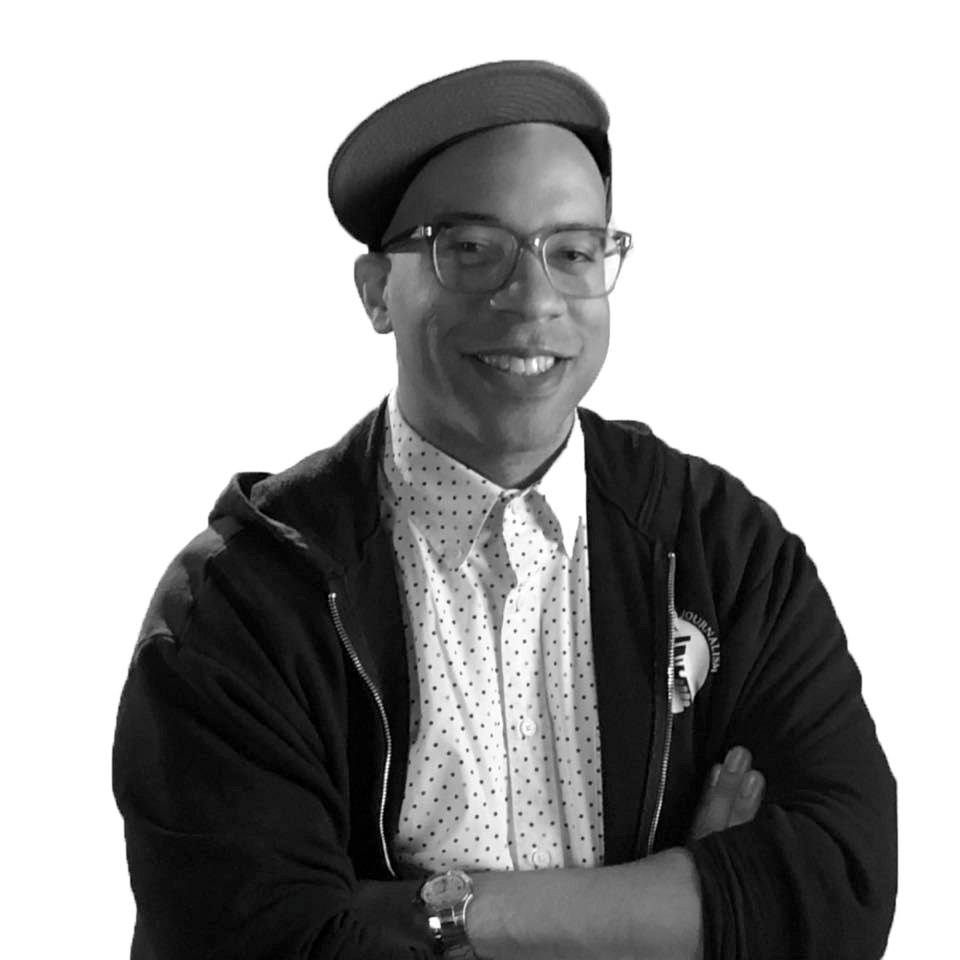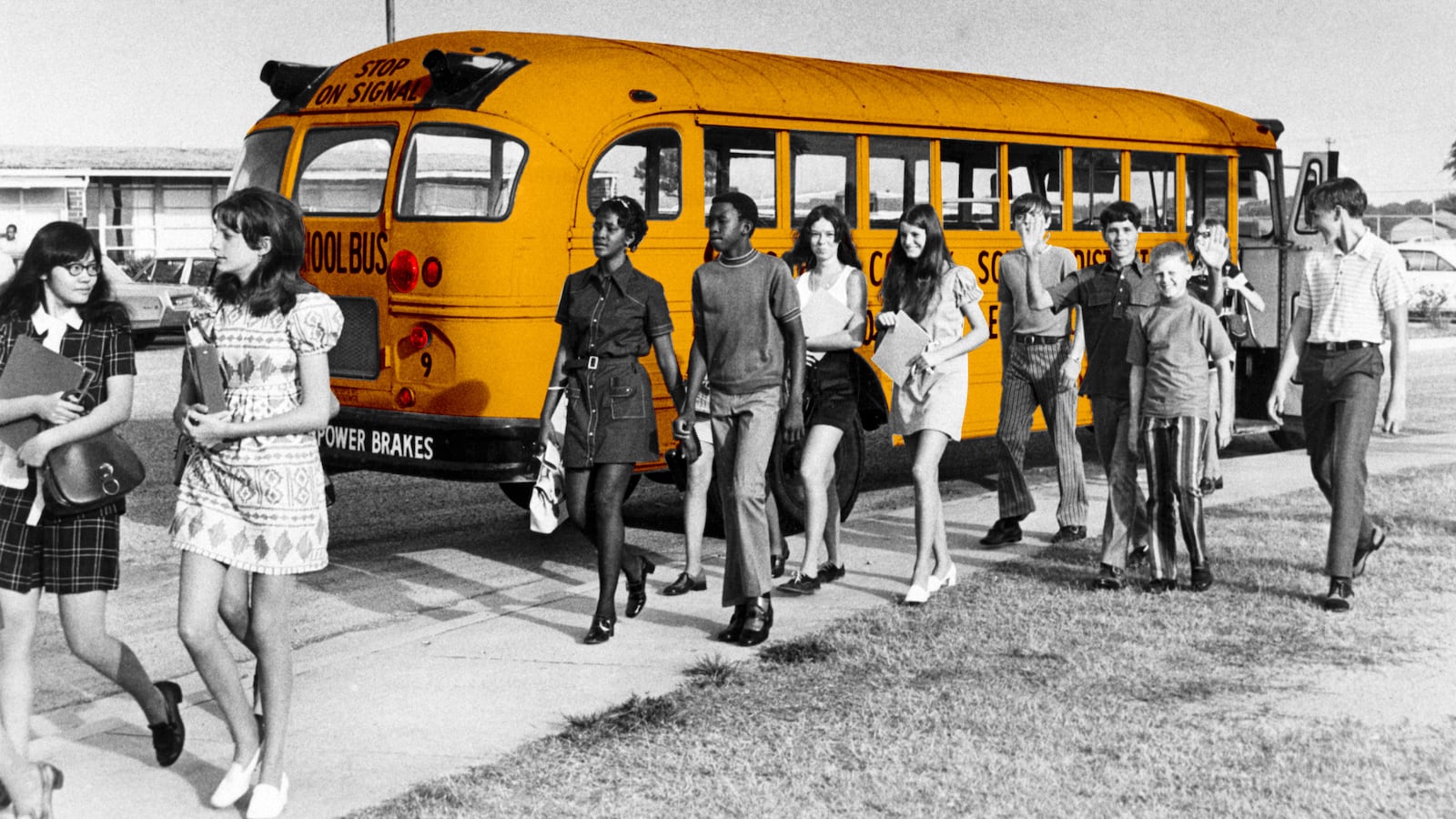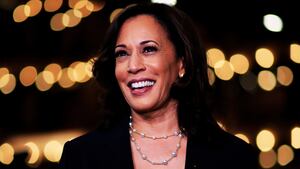No one could have predicted that busing—a nearly 50-year-old policy to force the desegregation of public schools—would be the issue to break the tenuous peace in the 2020 Democratic primary race. But now that it has, it actually makes perfect sense.
Despite a universal desire within the party to defeat Donald Trump (who coincidentally, doesn’t seem to know what busing is), there are huge, important divides on policy and political strategy—with the broadest philosophical fissure being between the incrementalist institutionalists (think Joe Biden, John Delaney, Michael Bennet and the other so-called moderates) vs. the activist progressives seeking profound structural changes (Bernie Sanders, Elizabeth Warren, and now, Julian Castro).
By taking the busing fight to Biden, Sen. Kamala Harris not only sought to align herself with the latter wing, but she also successfully demonstrated one of her greatest strengths as a candidate—her ability to surgically dismantle an opponent on the debate stage. Post-debate polls show her in a statistical tie with Biden for the lead in crucial early primary states, and virtually overnight she’s skyrocketed from a viable VP option to a formidable potential standard bearer.
Of course, with any sudden rise comes an inevitable backlash (Beto anyone?) and now both Harris’ own racial authenticity and the sincerity of her criticism of Biden’s past opposition to busing have come into question.
What is often overlooked in this increasingly heated turf war—which appears to be falling along the same racial and generational lines as every Democratic primary fight has since at least 2008—is that the party itself has had a less than stellar history on the issue of school desegregation.
Biden was not the only northern liberal to thread the needle of supporting civil rights but opposing busing decades ago. Liberals have always historically been guilty of promoting diversity everywhere but in their own backyards.
And school segregation still remains a huge problem 65 years after the Brown v. Board of Education decision. A recent New York Times report found that half of America’s schoolchildren are in racially segregated school districts (where over 75 percent of students are either white or non-white) and that there’s an overwhelming concentration of wealth in the white districts.
Even progressive Democrats haven’t been especially outspoken on this issue —focusing instead on broader student debt relief while throwing a bone to HBCUs, but that Band-Aid doesn’t address the lack of diversity prior to higher ed, which disproportionately has a net negative effect on young students of color..
On education, even the Obama administration largely subscribed to the Bush era framework of test-driven, performance-based financial incentives, with its Race to the Top program getting flak from the left for its failure to address more entrenched educational disparities, including those along racial lines.
In other words, with respect to busing and school desegregation more broadly, no Democratic or Republican president has ‘solved’ this problem and there is a debate to be had over what can.
Do we need to take drastic and potentially controversial steps to force the issue? Or do we need incremental reforms that work toward the goal of a more balanced public school system?
In order to choose the right path, Democrats are now being forced to confront their own complicity in perpetuating a broken system while also acknowledging that past progressive reforms were a mixed bag at best.
And the question remains whether the country—reeling from battles over climate change, immigration, and health care—is willing to wade into this thorny terrain, especially when this one hits closer to home for many progressives (liberal New York City is one of the worst offenders).
Busing, which has arguably become more of a euphemism for liberal overreach than a coherent policy, has always had critics on both sides of the political spectrum, with even its most ardent supporters conceding it was an imperfect way to address hundreds of years of de facto and legalized segregation.
But the fact remains that if one is serious about more racial parity in public schools—which has been shown to be culturally and educationally beneficial for all the parties involved—something must be done, and just as busing had to bypass opposition across the spectrum, any new reforms would have to pass muster with the likes of Mitch McConnell, which is no small feat.
Biden’s triangulation on busing and compromises with Southern segregationists are worthy of interrogation—particularly the argument that federal mandates were the problem. But then a conversation needs to happen about what we do in the future.
To a certain extent, the burden may be on Harris—who boldly inserted herself into this fight as “the only black person on stage” during the second Democratic 2020 debate. Just as Trump’s willingness to lend credence to birtherism came to define his political persona, Harris’ personal and passionate defense of the positive impact federal intervention on civil rights had on her life may define hers.
She will undoubtedly enter the next Democratic debate with something of a target on her back and the burden will be on her to either defend busing (which continues to this day), or to put forward a solution free from the flawed compromises of the past.
That will be a far greater challenge than throwing Joe Biden off his game. After all, the question has bedeviled progressives since before she was born.







